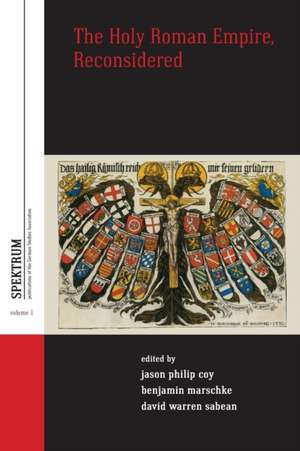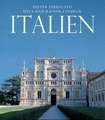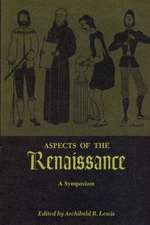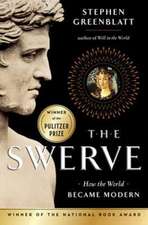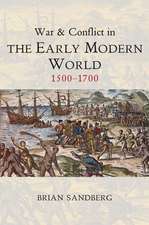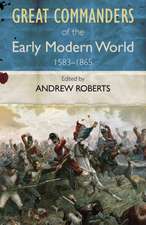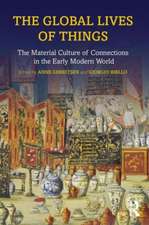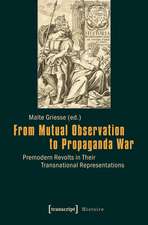The Holy Roman Empire, Reconsidered: Spektrum
Editat de Jason Philip Coy, Benjamin Marschke, David Warren Sabeanen Limba Engleză Paperback – 30 iun 2013
| Toate formatele și edițiile | Preț | Express |
|---|---|---|
| Paperback (1) | 264.82 lei 6-8 săpt. | |
| BERGHAHN BOOKS INC – 30 iun 2013 | 264.82 lei 6-8 săpt. | |
| Hardback (1) | 747.34 lei 3-5 săpt. | +26.40 lei 7-13 zile |
| BERGHAHN BOOKS INC – 11 oct 2010 | 747.34 lei 3-5 săpt. | +26.40 lei 7-13 zile |
Preț: 264.82 lei
Nou
Puncte Express: 397
Preț estimativ în valută:
50.67€ • 53.19$ • 42.06£
50.67€ • 53.19$ • 42.06£
Carte tipărită la comandă
Livrare economică 10-24 aprilie
Preluare comenzi: 021 569.72.76
Specificații
ISBN-13: 9781782380894
ISBN-10: 1782380892
Pagini: 346
Dimensiuni: 152 x 229 x 18 mm
Greutate: 0.47 kg
Editura: BERGHAHN BOOKS INC
Seria Spektrum
ISBN-10: 1782380892
Pagini: 346
Dimensiuni: 152 x 229 x 18 mm
Greutate: 0.47 kg
Editura: BERGHAHN BOOKS INC
Seria Spektrum
Recenzii
Over the last two decades historians have promoted the Holy Roman Empire from a creaking fossil ready for history's ax to a relatively effective government of a decentralized, highly diverse polity. This well-edited volume by a distinguished international corps of specialists offers the most current views on political Germany from around 1500 to around 1800. The perspectives range between two views: the Empire as the forerunner of modern German states; the Empire as an example of a typically premodern political culture. Readers who know only what textbooks say about Germany before 1800, are in for a surprise.A" -Thomas A. Brady Jr., University of California, Berkeley Whereas a revised view of the Empire is now part of the historiography in Germany it is not yet widely known among Anglo-American scholars. [O]ne of the important contributions of [this volume] is that it makes some of these revisionist approaches to the Old Empire accessible...I know of no other work that offers such a rich spectrum of approaches to the Old Empire.A" -Thomas Robisheaux, Duke University
Cuprins
SeriesPreface List of Illustrations Volume Preface List of Contributors Jason Coy, Introduction: The Holy Roman Empire in History and Historiography Section One: Presence, Performance, and Text Philip Hoffmann-Rehnitz, Discontinuities: Political Transformation, Media Change, and the City in the Holy Roman Empire from the Fifteenth to Seventeenth Centuries Alexander Schlaak, Overloaded Interaction: Effects of the Increasing Use of Writing in German Imperial Cities, 1500-1800 Benjamin Marschke, Le Caractere Bizarre: Princes' Power, Aristocratic Norms, and Personal Eccentricities: The Case of Frederick William I of Prussia (1713-1740) Section Two: Symbolic Meaning, Identity, and Memory Len Scales, The Illuminated Reich: Memory, Crisis, and the Visibility of Monarchy in Late Medieval Germany Ralf-Peter Fuchs, The Production of Knowledge about Confessions: Witnesses and their Testimonies about Normative Years in and after the Thirty Years' War Elisabeth Harding, Staging Individual Rank and Corporate Identity: Pre-Modern Nobilities in Provincial Politics Tim Neu, The Importance of Being Seated: Ceremonial Conflict in Territorial Diets Section Three: Ceremony, Procedure, and Legitimation David Luebke, Ceremony and Dissent: Religion, Procedural Conflicts, and the 'Fiction of Consensus'in Seventeenth-Century Germany Patrick Oelze, Contested Bodies: Schwabisch Hall and its Neighbors in the Conflicts Regarding High Jurisdiction (1550-1800) Michael Sikora, Conflict and Consensus around German Princes' Unequal Marriages: Prince's Autonomy, Emperor's Intervention, and the Juridification of Dynastic Politics Werner Trossbach, Power and Good Governance: The Removal of Ruling Princes in the Holy Roman Empire, 1680-1794 Section Four: Imperial Institutions, Confession, and Power Relations Michaela Hohkamp, Marital Affairs as a Public Matter within the Holy Roman Empire: The Case of Duke Ulrich of Wurttemberg and his Wife Sabine at the Beginning of the Sixteenth Century Andreas Kalipke, The Corpus Evangelicorum: A Culturalist Perspective on its Procedure in the Eighteenth-Century Holy Roman Empire Michael Printy, Gallican Longings: Church and Nation in Eighteenth-Century Germany Andre Krischer, Conclusion: New Directions in the Study of the Holy Roman Empire Glossary Bibliography Index
Notă biografică
Jason Philip Coy is an Associate Professor of History at the College of Charleston, in Charleston, South Carolina. He has received a DAAD Research Grant and a Maria Sibylla Merian Fellowship for Postdoctoral Studies from the University of Erfurt, Germany. He is the author of Strangers and Misfits: Banishment, Social Control, and Authority in Early Modern Germany (2008). His current research examines divination and demonology in Baroque Germany. Benjamin Marschke is an Assistant Professor of History at Humboldt State University in Arcata, California. He has held fellowships from the DAAD, the Fritz Thyssen Stiftung, and the Max Planck Institute for History. He has published Absolutely Pietist: Patronage, Factionalism, and State-Building in the Early Eighteenth-Century Prussian Army Chaplaincy (2005). He is currently working on a close study of the court and monarchical self-representation of King Frederick William I of Prussia (1713A---1740). David Warren Sabean is Henry J. Bruman Professor of German History at the University of California at Los Angeles. He has taught at the University of East Anglia, University of Pittsburgh, and Cornell, and has been a fellow at the Max Planck Institute for History in Gottingen, the Maison des Science de l'Homme, the Wissenschaftskolleg zu Berlin, the American Academy in Berlin, the National Humanities Center, and the International Research Center for Cultural Studies in Vienna. He has been the recipient of an Alexander von Humboldt Foundation Research Prize. He is a fellow of the American Academy of Arts and Sciences. His publications include Property, Production, and Family in Neckarhausen, 1700-1870
